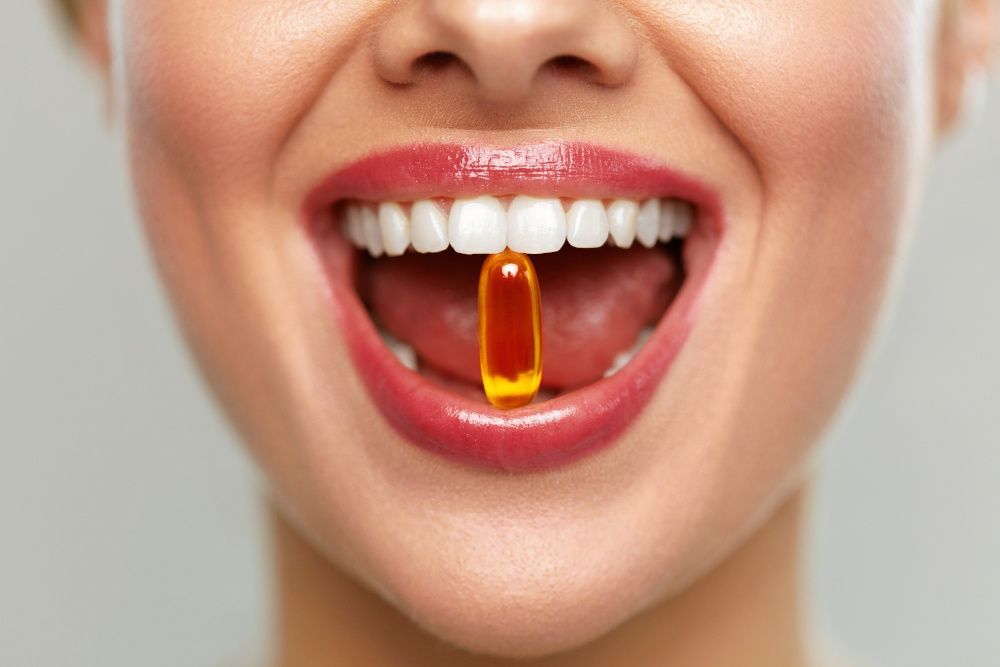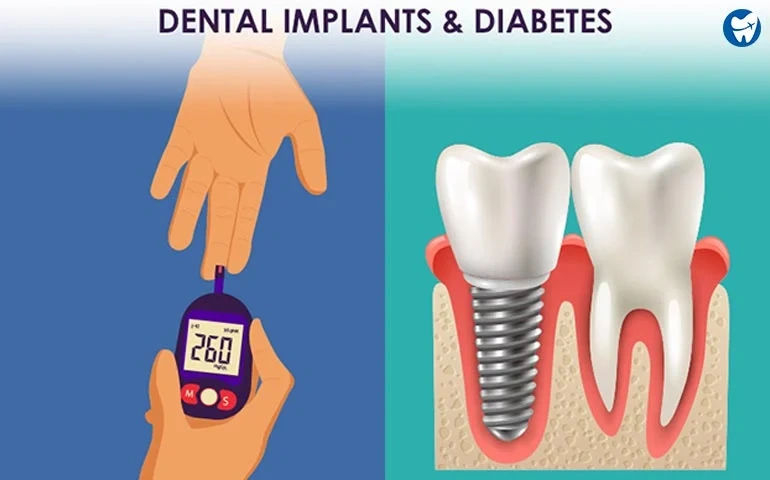Find Out Which Vitamin Deficiency Weakens Teeth?

There are various types of problems associated with tooth structure like its organic structure and mineralization. Vitamins play a significant role in determining the final healthy tooth structure. To understand the role of vitamins in tooth formation, first let’s learn about problems associated with tooth structure. There are basically three anomalies. Each of these are explained in following section:
Hypoplastic Teeth:
- Hypoplastic teeth refer to teeth with underdeveloped enamel, which is the hard, protective outer layer of the tooth. This condition can affect both primary (baby) and permanent (adult) teeth.
- Causes: Hypoplastic teeth can result from various factors, including genetic predisposition, prenatal exposure to certain toxins or infections, and nutritional deficiencies, particularly in calcium and vitamin D.
- Symptoms: Hypoplastic teeth may appear discolored, pitted, or grooved. They are more susceptible to decay and may be sensitive to temperature changes.
- Treatment: Treatment options for hypoplastic teeth may include dental bonding, dental crowns, or veneers to protect and improve the appearance of affected teeth. Management of any underlying nutritional deficiencies is also essential.
2.Hypomineralized Teeth:
- Hypomineralized teeth have a lower mineral content in their enamel, which can result in weaker and more porous enamel compared to normal teeth.
- Causes: The exact cause of hypomineralized teeth is not always clear, but it may be linked to factors like genetics, childhood illnesses, and early childhood trauma or injury.
- Symptoms: Hypomineralized teeth often appear discolored, ranging from creamy white to brown or yellow. They are more prone to decay, and individuals with hypomineralized teeth may experience sensitivity and pain.
- Treatment: Treatment may involve dental bonding, dental crowns, or other restorative procedures to strengthen and protect the affected teeth. Proper oral hygiene practices are crucial to prevent further decay.
3.Hypocalcified Teeth:
- Hypocalcified teeth have insufficient calcium in the enamel, making them vulnerable to breakdown and damage.
- Causes: Hypocalcified teeth can result from nutritional deficiencies during tooth development, certain medical conditions, or genetic factors.
- Symptoms: Affected teeth may have white or brown spots or patches on the enamel, and they can be more prone to decay. These spots may be soft and fragile, leading to enamel loss.
- Treatment: Treatment for hypocalcified teeth often involves preventive measures such as fluoride treatments and sealants to protect vulnerable areas from decay. In severe cases, restorative procedures like dental bonding or crowns may be necessary.
Role of Vitamin A
Vitamin A plays a crucial role in maintaining healthy teeth and oral tissues. Here's how vitamin A is associated with dental health:
- Tooth Enamel Development: Vitamin A is essential for the proper development and maintenance of tooth enamel. Enamel is the hard, protective outer layer of the teeth, and vitamin A contributes to its formation during tooth development. Enamel is primarily composed of minerals like calcium and phosphorus, and vitamin A helps regulate the cells responsible for enamel formation.
- Mucous Membrane Health: Vitamin A is crucial for the health of the mucous membranes that line the inside of the mouth, including the gums and cheeks. These membranes provide protection and support to the oral cavity. A deficiency in vitamin A can lead to dryness and vulnerability of these tissues, potentially causing discomfort and increasing the risk of infections.
A balanced diet that includes foods rich in vitamin A, such as leafy green vegetables, carrots, sweet potatoes, and liver, can help ensure you get the right amount of this vitamin to support your dental health and overall well-being.
Role of Vitamin B
Vitamin B is a group of water-soluble vitamins that play various roles in maintaining overall health, including dental health. While vitamin B itself doesn't directly impact the structure of teeth like calcium or vitamin A, it does influence several factors that can affect the health of your teeth and oral tissues. Here's how different B vitamins are associated with dental health:
- Vitamin B1 (Thiamine):
- Oral Tissue Health: Thiamine is important for maintaining the health of the mucous membranes in the mouth. A deficiency in vitamin B1 can lead to conditions like cracked lips, mouth sores, and a condition called angular cheilitis, which involves painful cracks at the corners of the mouth.
- Folic Acid (Vitamin B9):
- Oral Health and Development: Folic acid is crucial during pregnancy for the proper development of the baby's oral structures. A deficiency in folic acid during pregnancy can increase the risk of oral clefts and other developmental issues in the baby.
While vitamin B deficiencies can impact oral health, maintaining a balanced diet that includes a variety of foods, including lean meats, dairy products, leafy greens, and fortified cereals, can help ensure you get an adequate supply of these vitamins. If you suspect a vitamin B deficiency may be affecting your oral health, consult with a top dentist in Jaipur.
Role of Vitamin D on Teeth Health
Vitamin D plays a significant role in maintaining healthy teeth and overall oral health. Here's how vitamin D affects teeth:
- Calcium Absorption: Vitamin D is essential for the absorption of calcium in the intestines. Calcium is a primary building block of teeth and bones. Without sufficient vitamin D, the body may struggle to absorb calcium effectively, which can lead to weakened tooth enamel and an increased risk of tooth decay.
- Tooth Development: During the development of teeth, adequate vitamin D is necessary to ensure proper mineralization of dental tissues, including enamel and dentin. Without proper mineralization, teeth may be more prone to structural issues, such as enamel hypoplasia or underdevelopment of the enamel.
- Tooth Decay Prevention: Vitamin D may help reduce the risk of tooth decay by promoting the formation of antimicrobial peptides in the oral cavity. These peptides can inhibit the growth of harmful bacteria that contribute to tooth decay and gum disease.
- Oral Health During Pregnancy: Adequate vitamin D is crucial during pregnancy for the proper development of a baby's teeth and bones. A deficiency during pregnancy can lead to enamel defects and other dental issues in the baby.
- Gum Health: Vitamin D may also be associated with gum health. Some studies suggest that individuals with higher vitamin D levels may have a reduced risk of gum disease and periodontitis.
To ensure you have sufficient vitamin D for good dental health, it's important to maintain a balanced diet and get regular exposure to sunlight, as the body can produce vitamin D when the skin is exposed to UVB rays. Dietary sources of vitamin D include fatty fish (e.g., salmon, mackerel), fortified dairy products and cereals, egg yolks, and supplements if recommended by a healthcare professional.
If you suspect a vitamin D deficiency or have concerns about your dental health, it's advisable to consult with top dentist in Jaipur. They can assess your vitamin D levels and provide guidance on dietary changes or supplements to ensure you're getting the right amount of this essential nutrient for strong and healthy teeth.
Role of Vitamin K
Vitamin K is not typically associated with direct effects on teeth, as it primarily plays a role in blood clotting and bone health. However, it indirectly contributes to overall dental health through its influence on bone development and maintenance. Here's how vitamin K can indirectly affect teeth:
- Tooth Support: Healthy jawbones are essential for maintaining the stability and alignment of teeth within the oral cavity. If the bones in the jaw are weak or compromised due to a lack of vitamin K, it can affect the overall structure of the jaw and potentially lead to tooth mobility or misalignment.
- Dental Development: Vitamin K is crucial for proper skeletal development, including the development of the bones in the face and jaw. Any deficiencies in vitamin K during development could potentially affect the structure and alignment of teeth.
Vitamin K is typically obtained through a balanced diet that includes leafy green vegetables (such as spinach and kale), broccoli, Brussels sprouts, and some vegetable oils. It's important to maintain a well-rounded diet to ensure you get the necessary vitamins and minerals for overall health, including dental health.
If you have concerns about your vitamin K intake or bone health, or if you are experiencing dental issues, it's advisable to consult with a top dentist in Jaipur.
Conclusion:
Maintaining a balanced diet rich in vitamins and minerals, practicing good oral hygiene, and seeking regular dental check-ups are vital components of maintaining optimal dental health. While vitamins are crucial, dental health is also influenced by various other factors, including genetics, oral hygiene practices, and lifestyle choices.
If you suspect a vitamin deficiency or have concerns about your dental health, it's advisable to consult with healthcare professionals or top dentist in Jaipur. They can provide personalized guidance, recommend dietary adjustments or supplements when necessary, and ensure that you're taking the right steps to maintain strong and healthy teeth throughout your life.
- A-3, Natraj Nagar near Imli Phatak, Jaipur-302015
- +91 9945826926
- contact@amddentalclinic.com

How Diabetes Affects Dental Implants & Gum Health
Discover how diabetes impacts dental implants and gum health. Learn expert tips from AMD Dental Clinic to protect your smile. Read more today!

Is a Dental Implant the Only Option for Replacing a Missing Tooth?
Discover alternatives to dental implants for missing teeth! Explore expert insights from Dr. Mili Gupta at AMD Dental Clinic. Read now to learn more!

Why Dentists Recommend Dental Implants Over Bridges & Dentures | Expert Guide by a Prosthodontist in Jaipur
Discover why dental implants are preferred over bridges & dentures. Learn expert insights from Dr. Mili Gupta at AMD Dental Clinic, Jaipur. Read now!

